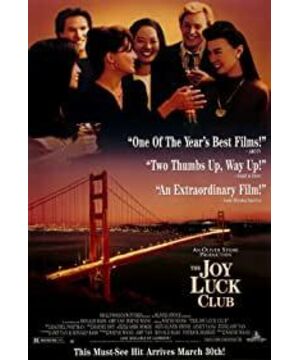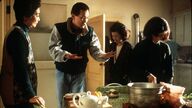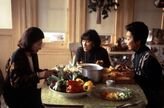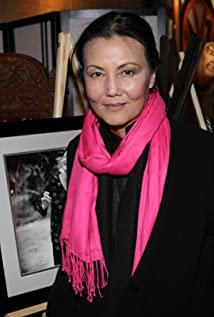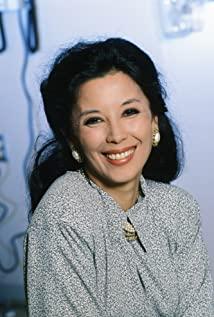In this film, the delicate and intricate love between mothers and daughters impresses me a lot, but that virtually reveals something about women's social status. In retrospect, taking Auntie Linda for example, her mother married her to a wealthy family and then left her hoping Linda would be better. In fact, it turned out to be a tragedy that Linda finally married to a little boy and she had been badly treated by her husband's family. Linda managed to escape the family by spreading rumors that her marriage is cursed by ancestors . To some extend, it reflects social status of women, which, generally speaking, is as low as a reproductive tool. At that time, Husbands could have several wives and women largely depended on men, hiding themselves in homes with no rights of making decisions even for trivial things.While Auntie Linda has her own story, auntie Yingying also possesses a tearful one. Yingying married to a man who was a playboy and suffered the pains of her miskilling of her son for the rest of her life. By contrast, her daughter's life is much decent and respectful for women alter their thoughts that they are just the accessories of men.
In a sense, this movie represents the director's perspective--how the women should view themselves and how to act properly as being daughters and mothers. I guess she may want to convey a message to audience that women should love themselves primarily. Yingying's daughter, Lena, wants to live an equal life with her husband. She pays her own bills, groceries, dramatically even calculates minor expenditures on food. When her mother Yingying came to visit her, she finally realized that what she indeed wanted is a relationship in which she would be loved and treated equally, rather than current ridiculous, groundless one. Rose, daughter of auntie Amei, had successfully built up a family with a white man, overcoming racial discriminations. But she thought behaving rightly and honestly serving her husband would make their marriage last longer.On the contrary, she lost her distinctive personality and even forgot the value of herself. In another word, she did not seem to know what she worth is. As she lingered at the edge of her marriage, her mother Amei shed light on her question and taught her that women have to love themselves first and figure out what they are worth. Eventually, Rose's husband rediscovered her differences and rescued their love.
A feather of a swan serves like a main clue for the whole movie. The swan accompanied June's mother from China to America and it grew to be too beautiful to eat, just like the changes of generations of women. This particular feather, condensed with all the things her mother wanted to tell her, finally slept in her hands. June knew why her mom had put so many hopes on her---her mother transferred hopes of her twin daughters who were born in China and left by herself because of war and poverty, to June. In the end of the film, June returned to China to meet her twin sisters and reunited as a family. Her mother's dream was fulfilled so was the other women's. All the characters get rid of shadows no matter what they used to be, indicating a brand-new future of women---a future with hopes, grace, respect, and love.
View more about The Joy Luck Club reviews


